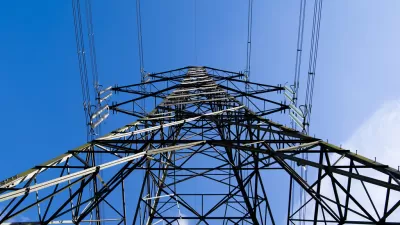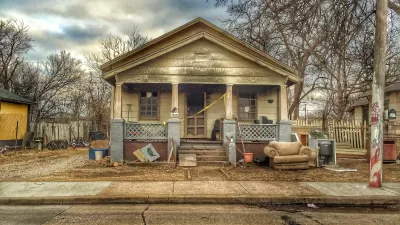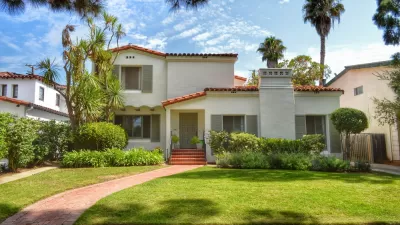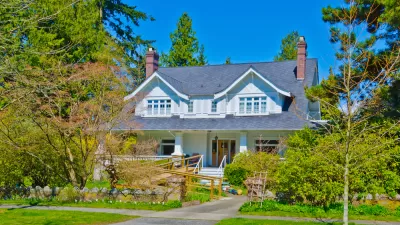Here's a news item that's sure to make for interesting conversation at your next dinner party. A new study has found that liberal homeowners tend to use at least five percent less electricity than conservatives.

Dora Costa and Matthew Kahn, of UCLA, conducted a study of electricity use in 280,470 single family residences in the Western United States and concluded that politically liberal households conserve more energy than politically conservative ones, reports Tom Jacobs.
Controlling for size and age of residence, climate and price of electricity, the study found that households registered as Democrats consumed 5 percent less electricity than Republican ones. Green Party members consumed 15 percent less.
Consumption rate gaps increased further for the hot summer months, with Democrats consuming 6.6 and Green Party members 19.1 percent less electricity.
The researchers conducting the study, which was published in the journal Economic Times, ascertain that there exists a relationship between human beliefs and behavior and that liberals exercise better self-restraint when the well-being of the environment is at stake.
FULL STORY: Liberal homeowners use less electricity

Planetizen Federal Action Tracker
A weekly monitor of how Trump’s orders and actions are impacting planners and planning in America.

San Francisco's School District Spent $105M To Build Affordable Housing for Teachers — And That's Just the Beginning
SFUSD joins a growing list of school districts using their land holdings to address housing affordability challenges faced by their own employees.

The Tiny, Adorable $7,000 Car Turning Japan Onto EVs
The single seat Mibot charges from a regular plug as quickly as an iPad, and is about half the price of an average EV.

Seattle's Plan for Adopting Driverless Cars
Equity, safety, accessibility and affordability are front of mind as the city prepares for robotaxis and other autonomous vehicles.

As Trump Phases Out FEMA, Is It Time to Flee the Floodplains?
With less federal funding available for disaster relief efforts, the need to relocate at-risk communities is more urgent than ever.

With Protected Lanes, 460% More People Commute by Bike
For those needing more ammo, more data proving what we already knew is here.
Urban Design for Planners 1: Software Tools
This six-course series explores essential urban design concepts using open source software and equips planners with the tools they need to participate fully in the urban design process.
Planning for Universal Design
Learn the tools for implementing Universal Design in planning regulations.
Smith Gee Studio
City of Charlotte
City of Camden Redevelopment Agency
City of Astoria
Transportation Research & Education Center (TREC) at Portland State University
US High Speed Rail Association
City of Camden Redevelopment Agency
Municipality of Princeton (NJ)





























